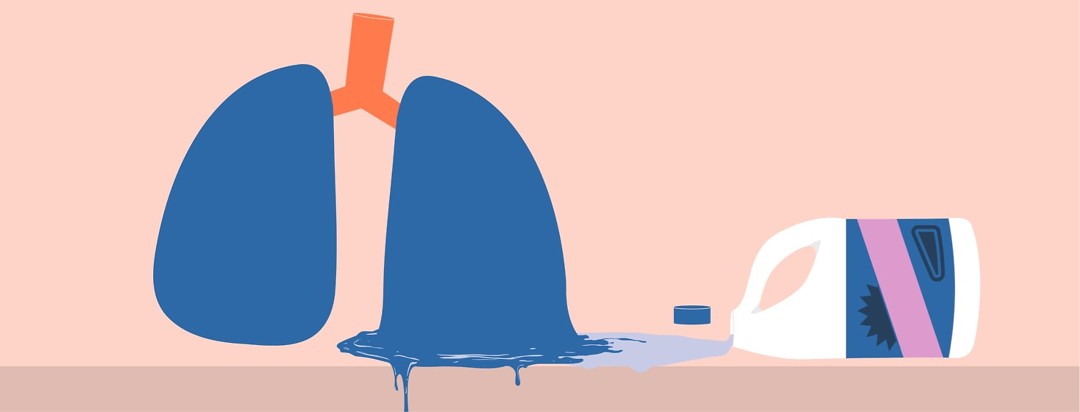COPD and Cleaning Products
Chronic obstructive pulmonary disease (COPD) is a term for a group of conditions that affect the lungs and make it hard to breathe. COPD is both chronic, meaning it will never go away, and progressive, meaning that it gets worse over time.
Tobacco smoke is the most common risk factor for developing COPD. But breathing in other irritants and toxins in the air over a long period of time can also cause COPD. People can come into contact with these irritants at work or at home. Researchers are looking at what types of irritants might put people at higher risk for developing COPD. One area of research is cleaning products.
Can cleaning products cause COPD?
A study in 2018 in the United Kingdom looked at which jobs put people most at risk for developing COPD. It found that people working as either industrial or domestic cleaners were at significantly increased risk.1 Another study showed that women who clean as their job had a faster decline in lung function over time than women who did not use cleaning products as often.2
Healthcare workers in the US have also been shown to have an increased risk of developing COPD. One study in 2019 looked at the potential risk to nurses who use different types of cleaning agents and disinfectants on a regular basis. This study found that nurses showed a 25%-38% increased risk of developing COPD. The authors of the study think that the chemicals in these cleaners harm the lungs a little bit at a time but that adds up to lasting damage.3
Which cleaning products?
The 2019 study of nurses found that the following cleaning products were connected with the increased risk of developing COPD:3,4
- Glutaraldehyde – used for sterilization and not generally used as an at home cleaner
- Bleach
- Hydrogen peroxide
- Alcohol
- Quaternary ammonium compounds, also called “quats” (commonly called “benzalkonium chloride” on household products) – found in many antibacterial spray cleaners and fabric softeners
How can I lessen the risk of cleaning products?
There are things you can do to help lessen the irritation these products can cause.
Avoid the cleaners above and use less harmful cleaners instead, like:4,5
- Warm soap and water can be used as a general cleaner
- Baking soda can be used for scrubbing
- Vinegar and water can be used as glass cleaner
If you can’t avoid the products completely:4,6
- Avoid aerosols and sprays to cut down on breathing in the droplets. Put cleaners directly onto a rag.
- Dilute chemicals to the lowest concentration that will still work.
- Open windows and doors to make sure there is good air flow and the area is well ventilated.
- Do not mix products. Some products may cause an unsafe chemical reaction when used together.
Although some cleaning products showed an increased risk for people who use them as part of their job, this does not mean it is unsafe to clean your home. The amount of time a person is exposed to the product and the strength of the cleaner both play a role in the level of risk. But following the steps above can help lower irritation even when cleaning at home. Talk to your doctor if you have any questions about how certain cleaning products might be affecting you.
Community Poll
Do you have an exercise routine?

Join the conversation